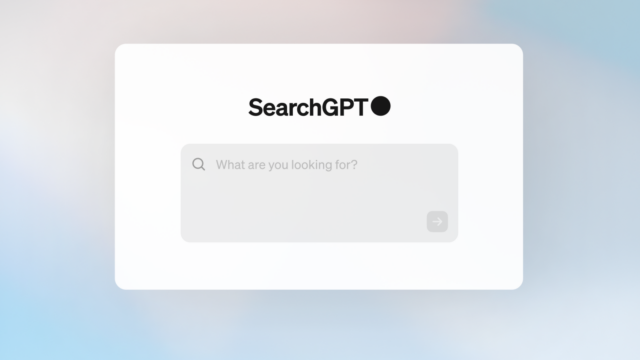Google’s CEO has just announced his intention to integrate even more AI features into their search interface, which means search marketers must prepare for an evolving landscape where traditional SEO tactics may no longer deliver the same impact in terms of traffic and conversions.
We’re already seeing AI Overviews (AIOs) increase the % of zero-click searches (searches that don’t result in a click), as well as shifting user behaviours around product and brand discovery – signalling that the search ecosystem is undergoing a fundamental transformation.
In this article, I’ll outline the recent developments impacting search performance, and provide actionable recommendations for marketers to thrive in this new era of search.
The impact of AI overviews
SEO specialists have speculated about a zero-click ecosystem ever since Google introduced featured snippets in 2014. Now, a decade later, the introduction of AI Overviews (AIOs) is bringing that much closer to reality.
Google’s AI-generated summaries provide in-depth answers, contextual insights, and related information all within the SERP—often eliminating the need for users to click through to an external site.
When expanded, AI summaries can take up nearly half the screen on both desktop and mobile, reducing the prominence of traditional organic listings. As a result, brands relying on organic search traffic are already seeing the effects.
A recent analysis by Seer Interactive, as reported by Search Engine Land, examined approximately 10,000 informational intent keywords ranking in the top 20 positions.
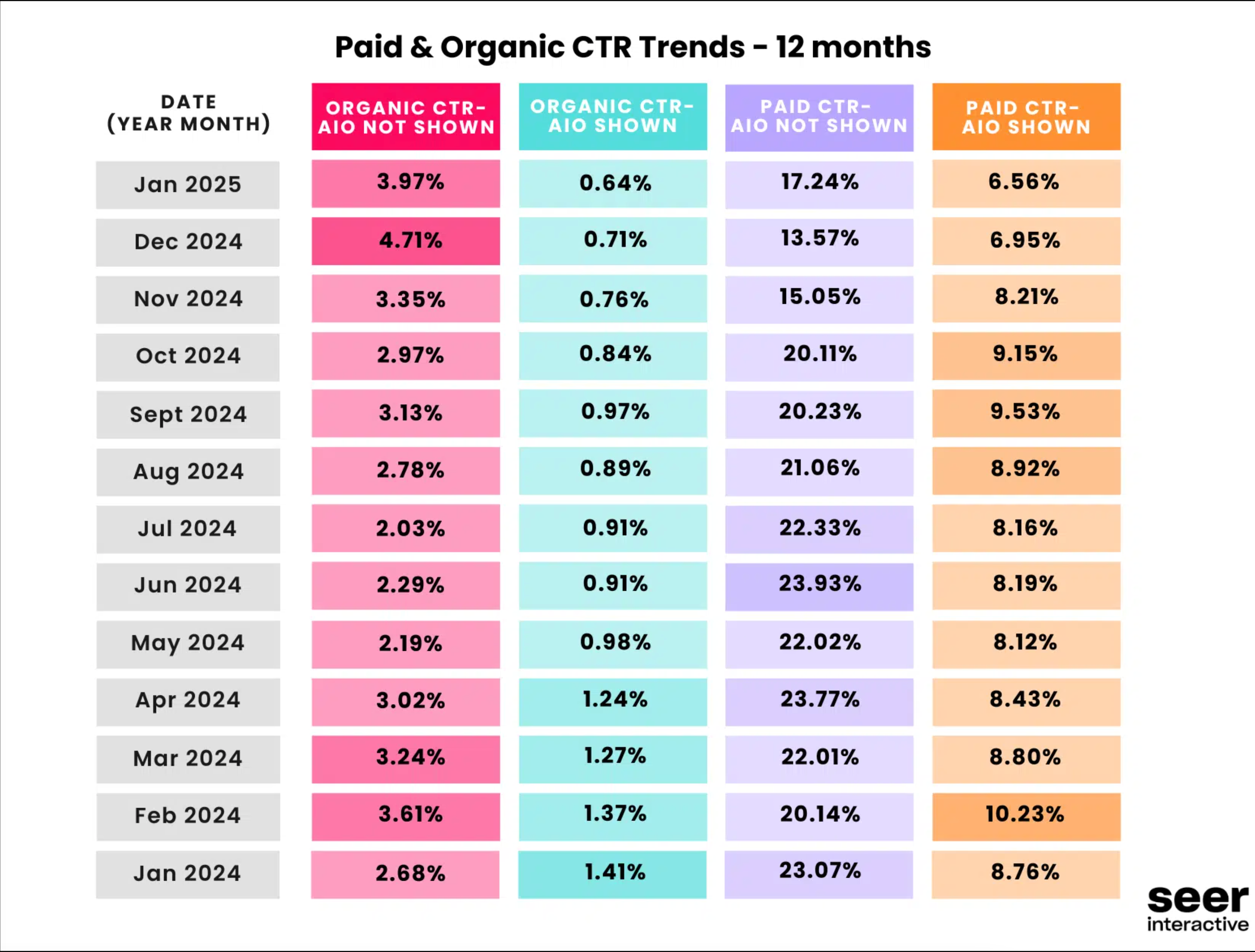
The study found that for queries where AI Overviews appeared, organic click-through rates (CTR) fell sharply from 1.41% to 0.64% year over year. Interestingly, when AI Overviews were not present, organic CTR actually increased.
Paid CTR also declined year over year, regardless of whether AI Overviews were present. However, both paid and organic CTRs increased when a brand appeared in AI Overviews.
This data underscores the significant impact AI Overviews have on search visibility and user engagement. As AI continues to reshape the search landscape, it’s crucial for marketers to adapt their strategies to maintain and enhance their online presence.
Social search and the rise of the answer engine
For over two decades, Google has been the go-to search engine, but today platforms like TikTok, Pinterest, and Instagram are becoming preferred channels for the younger generation.
According to Google themselves, nearly 40% of Gen Z users now turn to TikTok or Instagram over Google when searching for information, ranging from restaurant recommendations to fashion inspiration. In fact, Gen Z Turn To Google 25% Less Than Gen X When Searching.
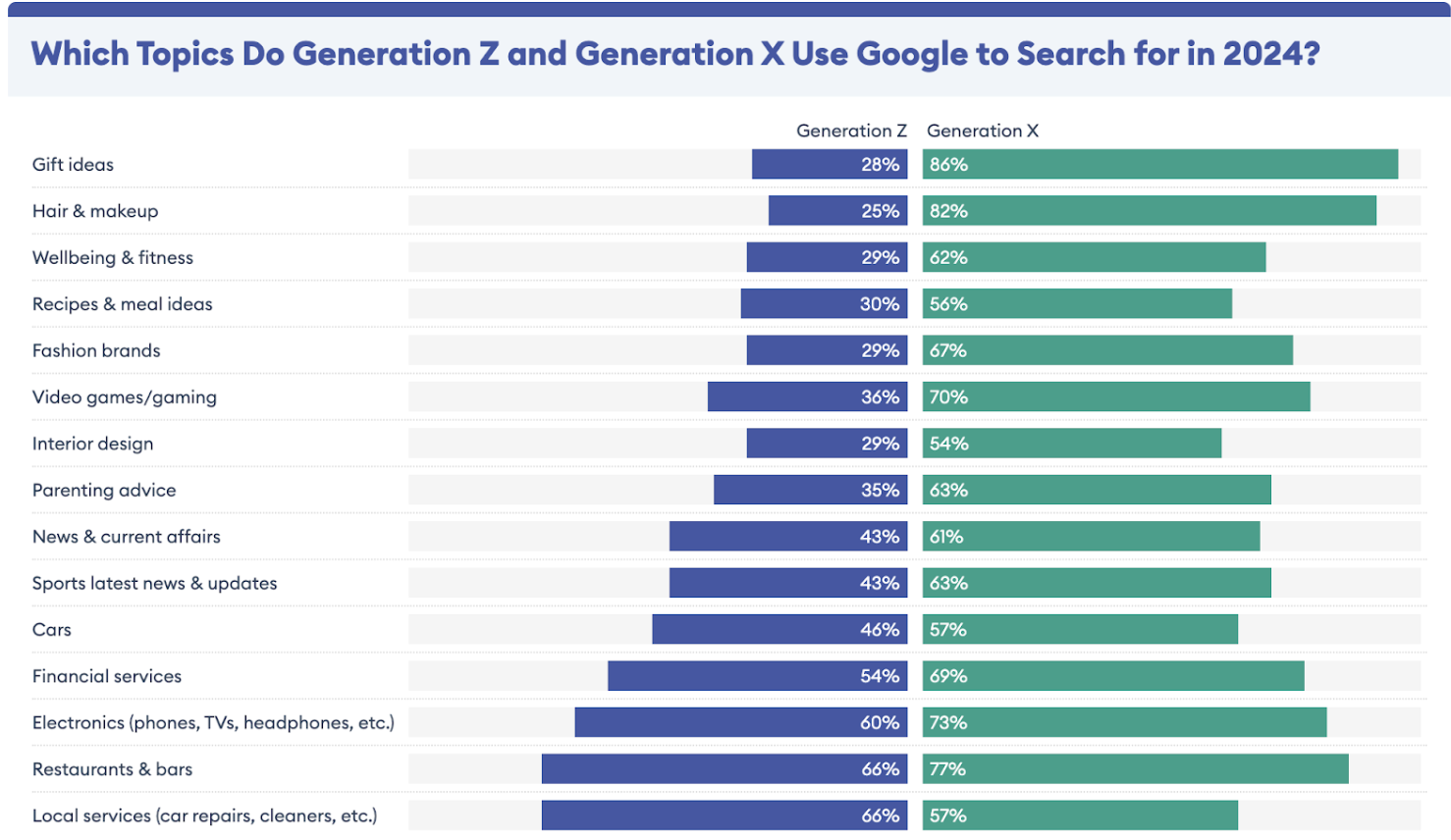
Alongside this growth in social discovery, sites like ChatGPT, Claude, and Perplexity are becoming fixtures in the search ecosystem. These “answer engines” have the ability to provide direct, generative responses to queries, marking a seismic shift in how consumers discover information.
These technologies are now delivering instant, conversational answers, leading to a gradual erosion of traditional search traffic. Research shows that these sites are now growing as traffic referrers, so making sure your brand’s content can be understood and cited by LLMs will only become more critical in the next couple of years.
Adapting to AI-driven search
1. The basics: optimise for AI overviews
Instead of fighting against the tide, why not focus on securing visibility within AIOs.
While citations in AI Overviews do not guarantee clicks, they offer a significant branding opportunity – positioning your brands as an authoritative source in the industry.
Here’s how to get started:
- Implement structured data markup to enhance the likelihood of AI referencing your content.
- Optimise content to answer questions concisely and comprehensively, increasing the chances of being cited in AI responses.
- Establish brand authority through E-E-A-T (Experience, Expertise, Authoritativeness, Trustworthiness) principles to improve credibility in AI-driven search environments.
- Analyze search intent trends and tailor content accordingly.
- Don’t forget to measure your visibility and traffic from Google’s AI Overviews!
2. Beyond Google: the rise of social search
Users are increasingly turning to platforms like TikTok, YouTube, Reddit, and Instagram for discovery and early information-gathering as opposed to Google search.
In 2024, 44% of all Google searches were branded searches—indicating that users often start their research elsewhere before turning to Google. Plus, 67% of social media users now engage with social search during their purchase journey.
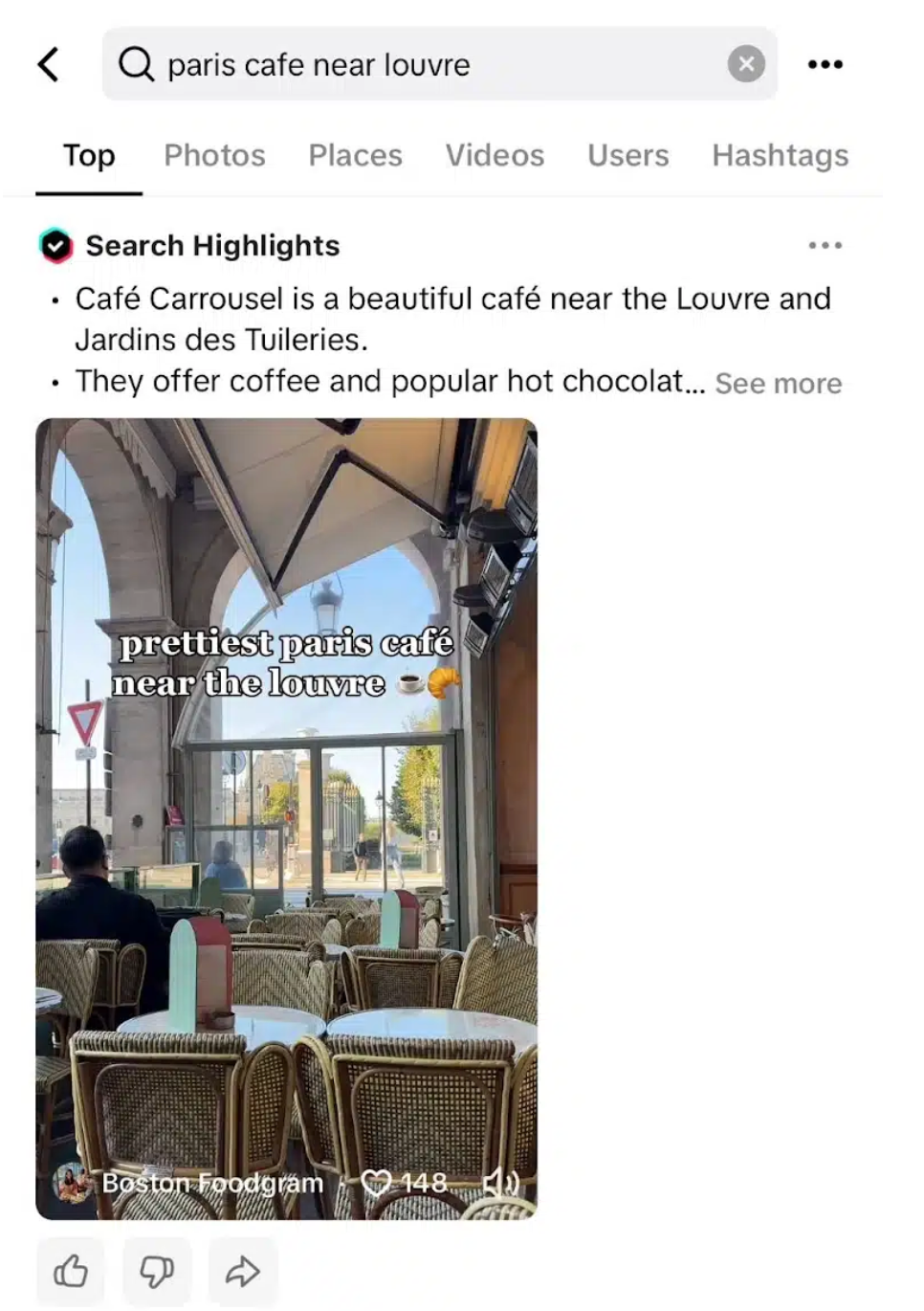
Here’s how to get started:
- Conduct audience research to better understand the platforms used during the discovery process – sites such as SimilarWeb and Sparktoro are excellent tools to help you build an understanding of the platforms frequented by your ICP.
- Optimise formats for social search within the platforms your audience spends their time, not just Google. For example, does your audience use Pinterest or YouTube during the discovery process? If so, ensure you have media tailored to those platforms.
- Leverage short-form video and UGC (User-Generated Content) to boost reach on platforms such as TikTok and Instagram – making you less reliant on high end creative production costs.
- Focus on brand-building beyond search, ensuring users know and seek out your brand directly – this means more focus on PR and brand campaigns which will ultimately drive organic demand for your brand.
3. Answer engines: building visibility in AI responses
Generative Engine Optimisation is an evolving practice of optimising your brand to be featured in the responses generated by AI applications, features, and models like ChatGPT, Gemini, Claude, and Perplexity.
If you’ve spent any time comparing the results generated by platforms such as Perplexity and ChatGPT, you’ll notice that they differ vastly from the results delivered by Google Search.
ChatGPT prioritises high-authority publications when generating responses, making citation in these sources even more crucial. To enhance your brand’s presence in AI-driven outputs, focus on high-authority sources that ChatGPT references.
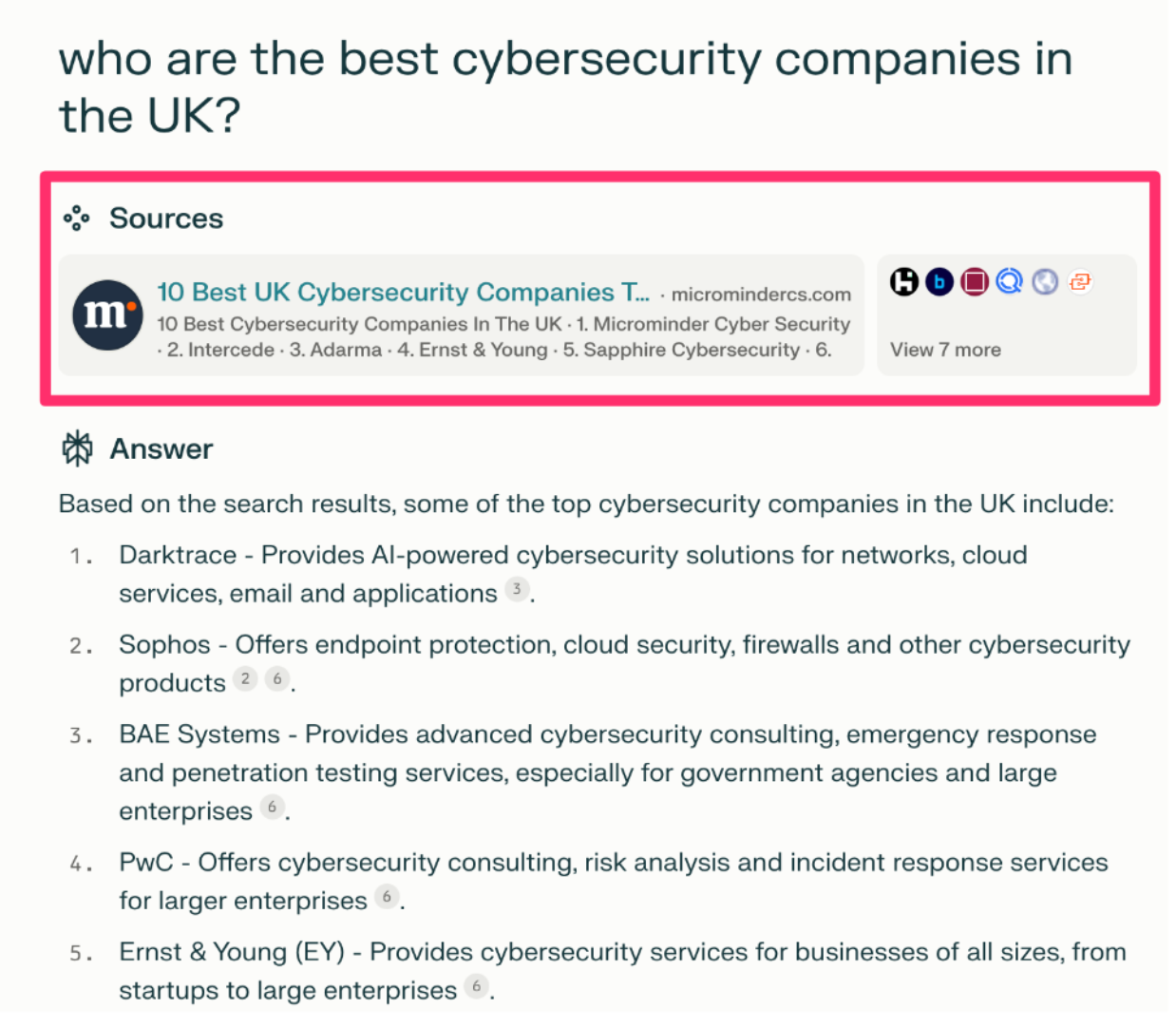
Here’s how to get started:
- Brand Perception Research: Assess how AI platforms like ChatGPT and Perplexity perceive your brand. Use these insights to shape your visibility on key referenced sources.
- Content Strategy: Identify the content types and formats favoured by AI-driven search engines. Optimise your content structure to align with the way AI processes and retrieves information for relevant search terms.
- Cited Sources Targeting: Focus on high-visibility sources frequently referenced by ChatGPT and Perplexity for key industry topics. Strengthening your presence in these sources increases the likelihood of brand inclusion in AI-generated responses.
4. Rethink measurement: from clicks to visibility
The decline of organic traffic doesn’t necessarily mean diminished search value. AIOs may filter out a tonne of informational searches, leading to fewer but more qualified visitors. The real metric shift should focus on lead conversion rates, brand visibility, and site engagement.
Furthermore, conversational searches such as those that take place on ChatGPT capture nuances and interests that keyword analysis simply can’t match.
This means that the classic data we have relied on will likely decline in relevance and effectiveness over time. However, a new metric, Share of Model, has started to gain traction as a way of measuring how often your brand is cited in AI-generated responses across platforms like ChatGPT and Perplexity
Here’s how to get started:
- Re-educate your peers – rankings and impressions may remain steady, but click-through rates are in decline from Google search.
- Measure visibility in AI responses such as AI overviews and Share of Model
- Prioritise on-site engagement metrics and conversions over raw traffic numbers.
- Adopt a ‘total search’ measurement approach – looking at the combined growth from Google search (SEO + PPC) as well as other discovery channels such as YouTube, TikTok and beyond.
A trend set to continue
If Google’s recent statements are anything to go by, AI-generated search results are clearly going to increase in the years to come.
People are now searching in more diverse ways, whether through AI assistants, TikTok, or Reddit discussions.
Rather than seeing declining organic real estate as a threat, view it as an opportunity to refocus on building brand authority beyond Google.
Ultimately, the brands that succeed will be those who move beyond basic SEO principles and build a multi-platform organic presence.




